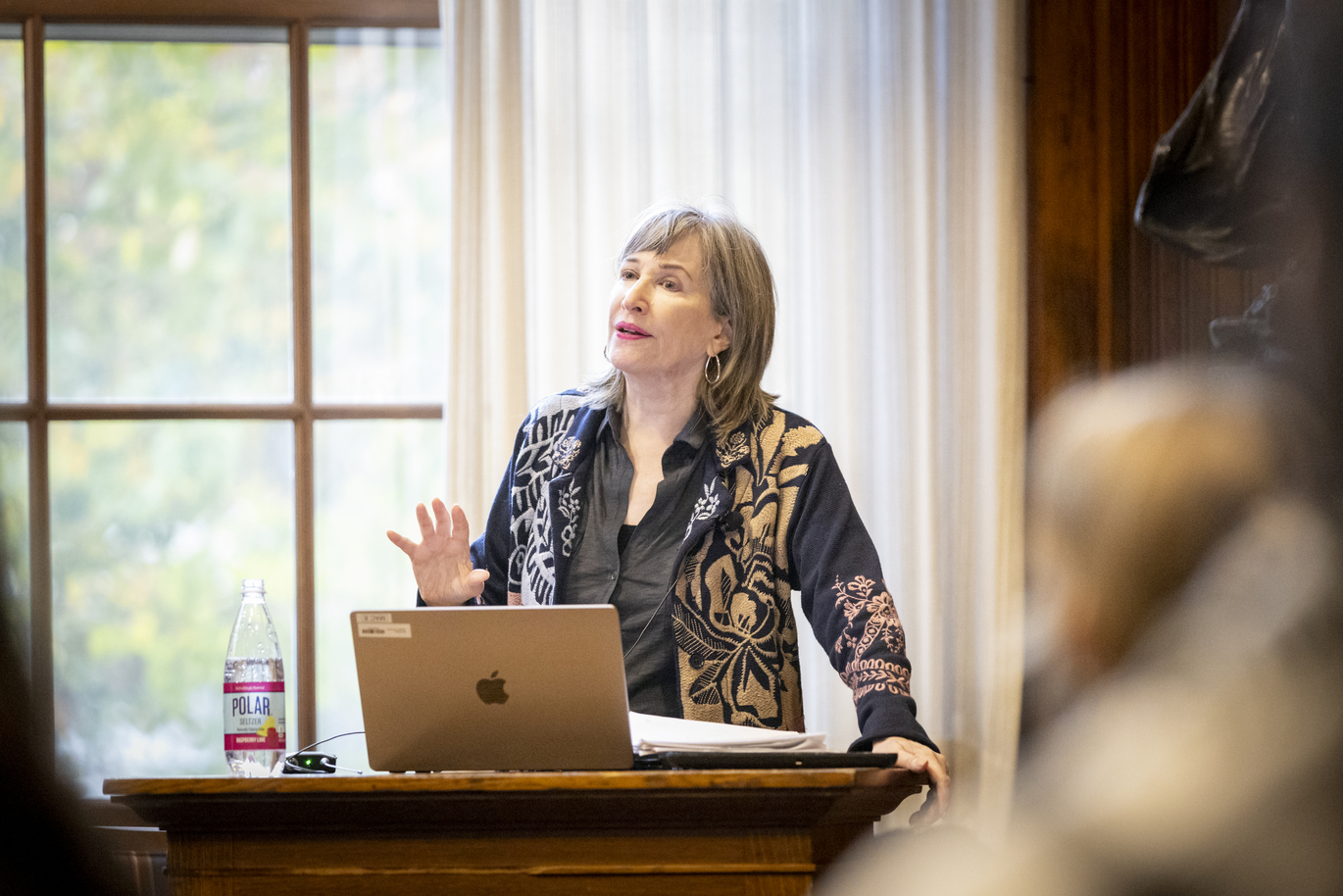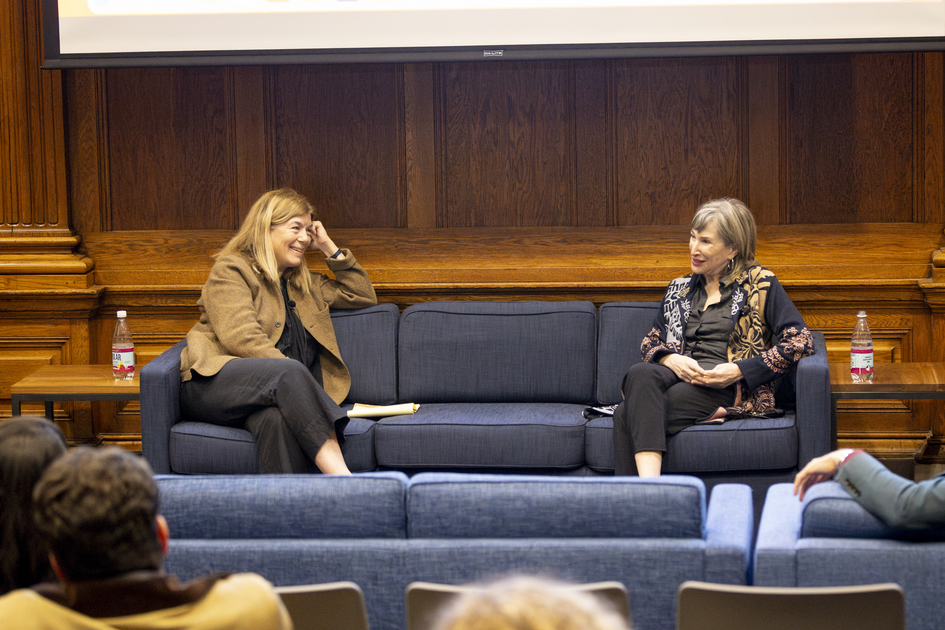
Photos by Niles Singer/Harvard Staff Photographer
Bot’s literary analysis wasn’t ‘brilliantly original’ — is that beside the point?
Writers Claire Messud, Laura Kipnis debate AI’s merits as a reading companion
This summer, cultural critic and author Laura Kipnis wrote about her experience being hired by an AI app to record 12 hours of commentary on “Romeo and Juliet” to train a chatbot to impersonate her. For a fee, the app lets users read a classic book in the public domain while chatting with an AI “guide,” such as Margaret Atwood, Roxane Gay, or Salman Rushdie. The goal, Kipnis explained, is to replicate the experience of a one-on-one tutoring session.
“The assignment was to be interesting more than it was to be an expert,” said Kipnis, who spoke at Harvard last week about the experience and the larger impact of generative AI on literature. “There were no parameters. Anything, however tangential, that I wanted to comment on about the play was OK. They were looking for voices that are kind of quirky and engaging for readers.”
The Department of English debate titled “Should You Become a Literary Bot?,” which was part of a campus initiative to boost civil discourse and intellectual vitality, featured an discussion between Kipnis and Claire Messud, Joseph Y. Bae and Janice Lee Senior Lecturer on Fiction, on whether AI chatbots are a good tool to help us analyze literature.
Kipnis, who learned in 2023 that her own books were among the thousands used without permission to train generative artificial intelligence, said she wouldn’t go so far as to call technology “neutral,” because it can be developed for social purposes that fall across the moral spectrum.

But she also doesn’t believe AI has an inherent social purpose baked in, which she says is the fear behind most of the “hand-wringing” about AI’s future.
“New technologies are going to reflect and intensify existing social forces and relations of production,” Kipnis said. “I don’t think they themselves create those relations — at least, so far.”
She suggests treating AI as a public utility and regulating it like one, though she is skeptical that the political will exists to do that.
“At what point do you think you are making a difference by not participating in something? We’re enrolled. We’re enlisted. There’s no standing outside.”
Laura Kipnis
“It seems currently a given that AI will take over the project of milking maximum profits from every last corner of social and private life for short-term gains in even more creatively nefarious ways,” Kipnis said. “Resisting AI isn’t going to change that dynamic if the culprit is not the technology.”
Messud pushed back on Kipnis’ assertion that adopting AI is a “given,” saying that attitude only perpetuates the idea that using AI is inevitable. She also pointed out that the Rebind app for which Kipnis recorded commentary is an example of the capitalist profit-chasing she was critiquing.
“At what point do you think you are making a difference by not participating in something?” Kipnis argued. “We’re enrolled. We’re enlisted. There’s no standing outside.”
In the Q&A portion, some audience members debated what such tools could or should replace, whether it could bring equity to public education in under-resourced areas, or if it distracts from the actual need for a better-funded education system.
The “Romeo and Juliet” Kipnis-bot hasn’t been published yet, but the audience examined an example of a chatbot on the same app that impersonates Irish author John Banville and, though still in beta, offers commentary on James Joyce’s “Dubliners.” As Kipnis prompted it with questions about the role of masculinity and sex in Joyce’s era, the bot, trained on Banville’s 12 hours of recorded commentary, infused its answers with much of the author’s signature witty humor.
“I always felt that Freud should have been a Catholic because psychiatry is akin to the Catholic confession box: ‘Be quiet and listen,’ until they get on to the subject of sex, and then they say, ‘Oh, tell me more,’” the bot quipped in the middle of its answer about the influence of religious doctrine on Irish society.
Messud criticized the Banville-bot’s multi-paragraph responses, which often repeated ideas and even phrases, calling them intellectually thin with a “high blather quotient.”
“So much of what’s interesting when I read is to know that an individual consciousness has chosen the words.”
Claire Messud
“So much of what’s interesting when I read is to know that an individual consciousness has chosen the words,” Messud said. “I’m really interested in the fracturing, in the weird decisions and the words that don’t quite fit, in the idiosyncrasies of it.”
Kipnis said Messud might be setting the bar too high in expecting a chatbot that is designed for interaction to also be “brilliantly original.”
“I think the idea is that it promotes or helps people engage who might not otherwise engage in classics,” Kipnis said. “People who just want a different experience of reading.”




